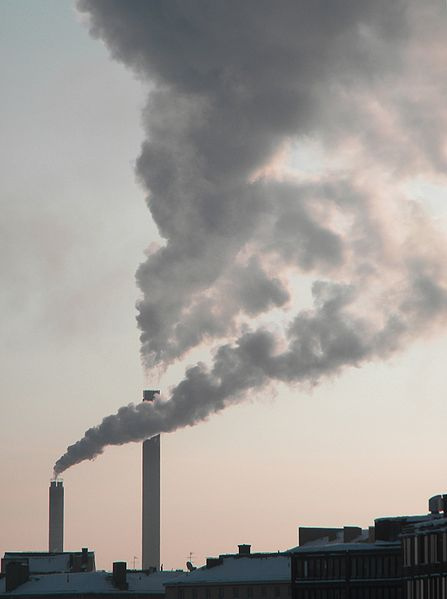Following two weeks of negotiations by more than 190 countries in Lima, United Nations members have claimed to have set a “clearer vision” for a 2015 agreement on climate change.
The negotiations agreed that all nations should take action against the threat of climate change, however, a number of key decisions have been delayed until the summit in Paris late next year.
Below is a roundup of all the latest reaction to the agreement:
Manuel Pulgar-Vidal, the minister of the environment of Peru and the COP President:
“Lima has given new urgency towards fast tracking adaptation and building resilience across the developing world – not least by strengthening the link to finance and the development of national adaptation plans.
“Meanwhile here in Lima, governments have left with a far clearer vision of what the draft Paris agreement will look like as we head into 2015 and the next round of negotiations in Geneva.”
Christiana Figueres, executive secretary of the UN Framework Convention on Climate Change (UNFCCC):
“Governments arrived in Lima on a wave of positive news and optimism resulting from the climate action announcements of the European Union, China and the United States to the scaling up of pledges for the Green Climate Fund.
“They leave Lima on a fresh wave of positivity towards Paris with a range of key decisions agreed and action-agendas launched, including on how to better scale up and finance adaptation, alongside actions on forests and education.
“The negotiations here reached a new level of realism and understanding about what needs to be done now, over the next 12 months and into the years and decades to come if climate change is to be truly and decisively addressed.”
UK secretary of state for energy and climate change Ed Davey:
“This is an agreement that unites all nations, unlocking the door to the world’s first global climate deal in Paris next year.
“The talks were tough but the Lima Call for Climate Action shows a will and commitment to respond to the public demand to tackle climate change.
“I am proud the UK has been leading the way – by our laws on low carbon energy and climate, by successfully championing ambitious targets to cut emissions in Europe and with our central role here in Lima.
“The next 12 months will be critical and the UK’s leadership will be needed more than ever in the difficult negotiations ahead – but we have to succeed because the threat to our children’s future is so serious.”
.
Felipe Calderón, former President of México and chair of the Global Commission on the Economy and Climate:
“This week in Lima we have made progress towards an international agreement that will send a clear signal to businesses and investors. There is still considerable work to be done. But I am encouraged that countries, all around the world are beginning to see that it is in their economic interest to take action now.”
John Cridland, CBI Director-General:
“With the Lima Conference coming to an end, it is imperative that we carry the momentum forward to Paris with ambition and clarity, to achieve the lasting global deal the world is waiting for.
“Business not only has a responsibility to tackle climate change, it’s key to the solution. By developing cutting-edge products and innovative services across the globe, companies are critical to cutting emissions and creating a green economy.
“For business to deliver effectively though, it needs a sure and stable policy environment in which to invest and innovate. Next year’s climate conference in Paris is the golden opportunity to create the long-term frameworks that will give business the confidence and security it needs to play its part in building a sustainable future for the next generation.
“Climate change is a global problem that needs a global solution. An international deal, with nations shouldering responsibility together, will foster competition and allow the economy to prosper in a low-carbon world.”
Martin Kaiser, head of international climate politics, Greenpeace:
“Governments have just kicked the can further down the road by shifting all the difficult decisions into the future. The momentum of the China-US agreement has slammed into nearly immobile climate talks. Time is running out and solutions must be delivered before climate chaos becomes inevitable”
“The success of the Paris agreement next year relies now on the decisions politicians make when they get home. Early next year, governments must show us something tangible and explain how they will cut emissions, support vulnerable countries and pay for clean energy by 2025.If weak goals are agreed upon for 2030, we’ll be locked into fifteen years of increasing pollution and more lives damaged by environmental catastrophes.”
David Nussbaum, CEO, WWF-UK:
“The destination is a deal in Paris that secures a safe and stable climate. But parts of the map to get there from Lima are missing – including the critical piece of what governments need to do over the next five years. So in the next six months, our political leaders need to spell out how they will navigate us to an agreement in Paris which matches the scientific evidence of what needs to be done.
“Many others, including businesses who have recognised that action is both doable and desirable, are already contributing – with investment in clean energy technologies and new jobs.
“The UK’s recent climate finance pledge was welcome; but now we need the UK to work urgently with other governments to define our route to a successful outcome in Paris. The G7 Summit in Germany in June is a potentially crucial opportunity to do so.”
.






